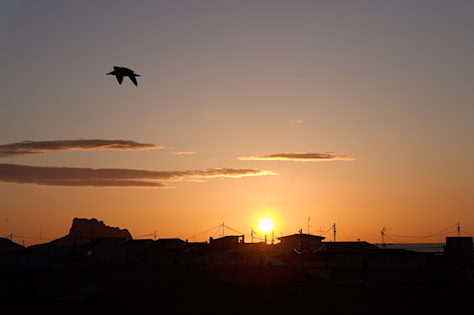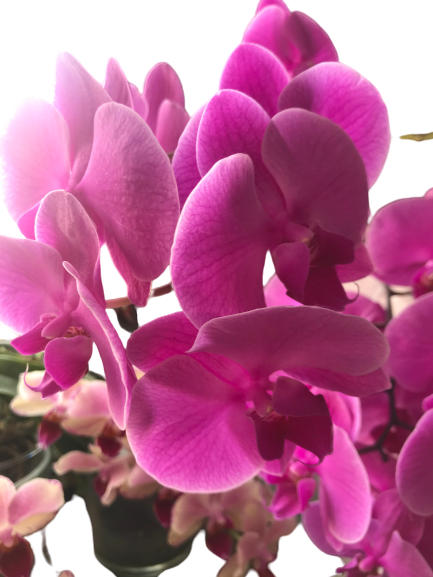[pl_row]
[pl_col col=12]
[pl_text]
Muy buenas, hoy os escribo en español ya que este post va destinado a una persona en concreto.
Pues, este pobre persona sufre desde hace tiempo con problemas intestinales, concretamente diarreas. Le condiciona la vida bastante, ya que son frecuentes y diarias. Habiendo ya consultado con su medico, pero sin encontrar la solución, tiene que convivir con esta molestia. No suena exactamente agradable, ¿no?
Por suerte, la Naturopatia nos ofrece unas posibles respuestas al asunto. Es posible que sufra del Síndrome de Intestino Perforado.
Lo primero que voy a hacer es colgar unos enlaces porque hay mucha gente que escribe mejor que yo en español (aunque poca en inglés 😉 Listos para la lista? Vamos:
Si has tomado el tiempo de mirar los links, verás que el núcleo del problema tiene que ver con la inflamación y la dieta. Se habla mucho, hoy en día, de la inflamación. Quizás porque estamos casi todos sufriendo de varios grados de inflamación crónica. La culpa es “la vida moderna” – la comida basura, la falta de ejercicio, los residuos de pesticidas, fungicidas y conservantes y una larga etc. Pero ahora no voy a adentrarme mucho en eso, ya que es una materia muy, muy extensa.
Candida Albicans
Lo que sí, voy a comentar, es un poco sobre un organismo que suele estar presente in los intestinos sensibles, dañados y inflamados: Candida albicans, ó C.albicans. C.albicans es un hongo que todos tenemos en nuestro cuerpo. Es casi como la levadura del pan (Saccharomyces cerevisiae) – ubicuo. C.albicans convive felizmente con nosotros porque tenemos unos amiguitos que nos protegen contra él. (ó ella?) En el intestino, las bacterias son nuestros amigos más fieles. Pero, cómo que una bacteria nos puede proteger? Tiene que ver con su metabolismo…no te asustes, quedamos con explicaciones sencillas.
Bueno, tanto los hongos cómo las bacterias son unicellular. Eso significa que todo lo que necesitan para vivir lo tiene en una célula. Tal cómo nosotros comemos alimentos para vivir, y echamos fuera lo no digerido, las bacterias y los hongos lo hacen. Lo importante es lo que echan fuera. Hay hongos que comen azucares (carbono) y echan alcohol. La C.albicans puede hacer eso. Hay bacterias que comen azucares y echan ácidos. Nuestros amiguitas hacen eso. Al echar sus ácidos, el crecimiento de C.albicans se ve frenado. C.albicans está, pero no se pasa.
Pero, a veces nos vemos obligados a tomar antibióticos. Lástima que no solo matan a los bichos que nos ataquen a la garganta, sino a todas las bacterias del cuerpo. Cuando pasa eso OJO! Porque la C.albicans aprovecha el vacío y empieza un crecimiento brutal.
Los hongos son capaces de existir en diferentes estados – las esporas y los micelios. Cuando C.albicans está controlada, hay más esporas. Cuando se descontrola, llegan los micelios. Los micelios tienen “raices” que pueden llegar a penetrar nuestra pared intestinal, causando el “Leaky Gut Syndrome” (LGS) ó “Syndrome de intestino permeable” (SIP).
Patologias intestinales
El rol metabólico del intestino grueso es de excretar del cuerpo lo que no se puede digerir, y re-absorber alguna vitamina y algo de agua. Los restos muevan por el intestino por unas contracciones musculares. No es deseable que los restos pasasen mucho tiempo en el intestino ya que pueden fermentar…pero tampoco tienen que irse huyendo, ya que perdemos una parte de nuestra nutrición. En los pacientes de SIP, las dos coses suelen pasar – hay fermentación, pero también hay pérdidas. Resumiendo, la cosa no está en equilibrio. El SIP daña a los tejidos del intestino, perjudicando su buen funcionamiento. Y así llegamos a las gases, las diarreas, el dolor, el flato y incluso algunas patologías alejadas de la zona intestinal, pero vinculadas al síndrome. Piensa en el acne, la eczema y vas del buen camino. La lista es larga, ponte a investigar, ok?
¿Que hay que hacer?
La solución es llevar durante unos 3 meses una dieta muy restringida y depurativa. Nada de NADA de pan, pasta, azúcar, alcohol, alimentos fermentados, fruta dulce, bollería, postres en general etc etc. Efectivamente, quieres dejar C.albicans morirse de hambre. Tranquilo, tú no te vas a morirte de hambre…hay muchos alimentos que entran en la dieta…legumbres, semillas, verduras (la lechuga, no), algunos cereales como la cebada…Pero sí, la dieta es estricta y vas a tener algunos secuelas de reacciones de “detox”.
La buena noticia es que la dieta estricta no sea para siempre, y que el intestino puede llegar a repararse.
Así que, espero que te ha gustado el post, y que has podido entender el asunto. Si te apetece compartir, te lo agradezco ya que nunca se sabe a quien le pueda venir bien la información…
Sin nada más, te mando un abrazo luminoso y mucha paz,
Rachel
[/pl_text]
[/pl_col]
[/pl_row]




